This ancient morning ritual might be the upgrade your rushed breakfast routine desperately needs.

While Americans rush through drive-thrus grabbing sad paper bags of processed breakfast sandwiches, a more relaxed morning ritual unfolds across the Balkan Peninsula. Here, breakfast isn’t just food—it’s a cultural tradition where time slows down and flavors shine. Balkan breakfasts have recently caught worldwide attention, with food experts praising their fresh ingredients, protein-rich foods, and family-focused eating style.
Beyond the pretty Instagram pictures lies a simple question: can following this centuries-old breakfast tradition actually make your daily life better? The evidence suggests yes.
From stabilizing blood sugar to fostering deeper family connections, the humble Balkan breakfast punches far above its weight class in benefits. These morning meals—with their focus on real foods, mindful eating, and social connections—offer more than just filling your stomach. They provide a time-tested blueprint for starting your day that nourishes both body and mind, potentially transforming everything that follows.
1. Complex carbs banish your mid-morning energy crash.

Traditional Balkan breakfasts skip the high-sugar parade that fills Western morning options. Instead of the blood sugar roller coasters triggered by pastries and cereals, Balkan morning meals feature complex carbs like homemade whole grain bread that release energy slowly throughout the morning. This steady fuel keeps your energy levels stable until lunch.
Noticeable differences appear about two hours after eating, when donut-eaters crash into mid-morning tiredness while Balkan breakfast fans keep their momentum going. According to Georgia Day at Vogue, starting your day with vegetables, meat, cheese, eggs, and whole grain carbohydrates contributes to satiety, helping to stave off the mid-morning energy crash and keeping you satisfied until lunch. Many first-timers report this steady energy as the most obvious benefit—no more 10 AM slump that sends office workers running to the coffee machine for their second or third cup of caffeine.
2. Protein becomes the morning hero you never knew you needed.
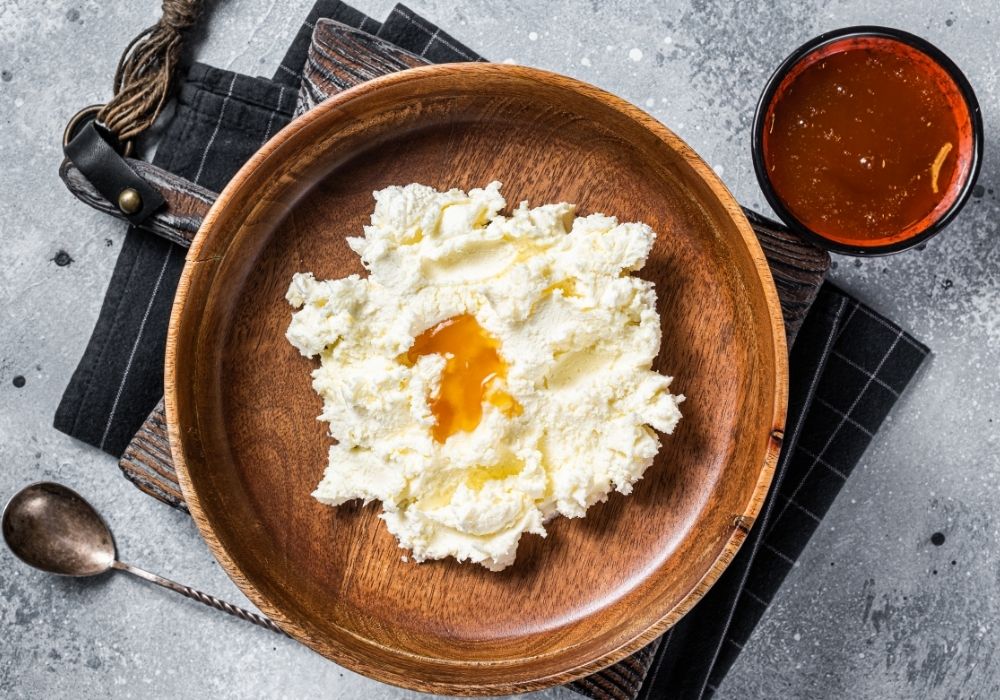
Most Western breakfasts treat protein as an occasional guest star rather than the main attraction. Balkan breakfast traditions flip this script by making protein-rich foods the foundation of the morning meal. Kaymak (a creamy cheese spread), ajvar (red pepper spread often served with eggs), various meats, and yogurt deliver plenty of protein that supports muscles and keeps you feeling full.
Protein-packed meals help explain why many Balkan people can work hard all morning without constant snacking. Per Freydis Hjalmarsdottir at Healthline, high-protein breakfasts can reduce hunger and help people consume fewer calories later in the day. For those going several hours between breakfast and lunch, this protein-rich approach makes the waiting period much more comfortable.
3. Your gut gets a probiotic party before 9am.

Balkan breakfast tables consistently feature fermented foods that most Americans wouldn’t consider breakfast fare. Bulgarian yogurt drinks, homemade yogurt, and various pickled vegetables deliver helpful bacteria to your digestive system right at the start of the day—basically a tasty probiotic supplement in food form.
Fermented morning foods support gut health, helping your body absorb nutrients better throughout the day. Laura Fisher and Maggie Seaver for Real Simple explain that fermented foods like kefir and sauerkraut are rich in probiotics that promote a healthy gut microbiome, which is crucial for overall health. Regularly eating these probiotic-rich foods is linked to better immunity, improved digestion, and even better mood. With growing evidence connecting gut health to overall wellness, starting your day with foods that support digestion is one of the Balkan breakfast’s best hidden benefits.
4. Vegetables sneak into breakfast and nobody complains.
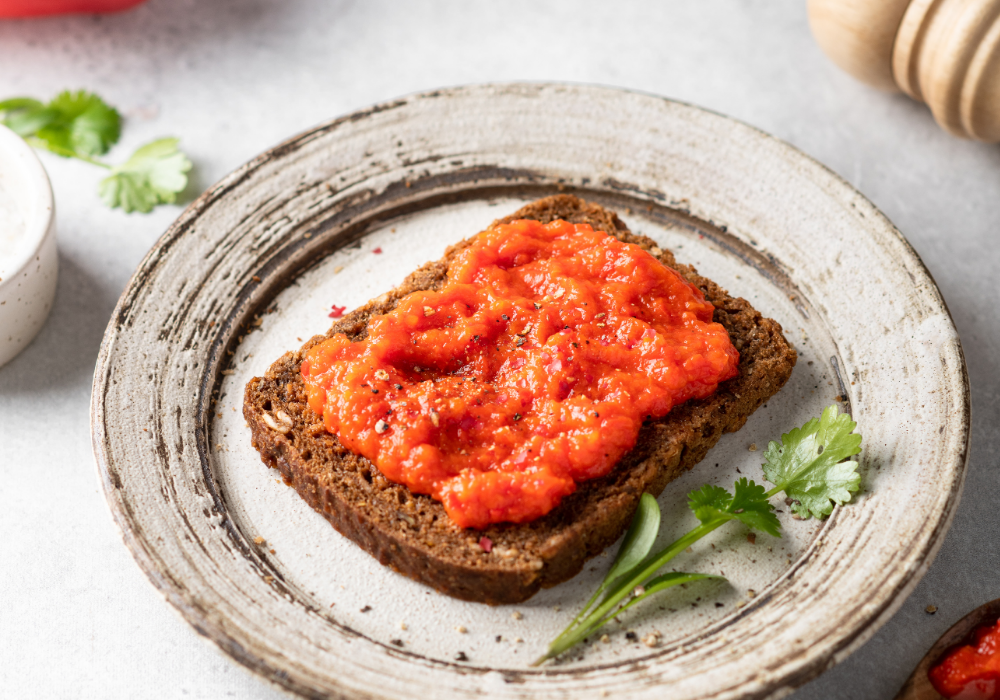
Cucumber, tomato, bell pepper, and other fresh vegetables regularly show up on Balkan breakfast tables—something completely foreign to Western breakfast habits. Morning vegetable traditions give you an extra serving of produce without changing anything else about your diet. Fresh veggies come uncooked, keeping their nutrients and flavor intact. Over time, adding these morning vegetables makes a big difference.
Someone eating a traditional Balkan breakfast easily gets 2-3 servings of vegetables before most people have their first bite of produce. This early start on daily nutrition gives you antioxidants and plant nutrients when your body is best able to absorb them after overnight rest.
5. Family connections thrive at the morning table.

Balkan breakfast traditions turn the first meal from a rushed necessity into a valued family gathering. Weekend breakfasts often stretch into hours where family members catch up, share news, and nobody checks the time. This relaxed approach makes eating about more than just filling your stomach.
Social connections make impacts beyond just the meal. Starting the day by talking with family or friends sets a tone of being present that continues through your other activities. Families who try Balkan-style breakfast gatherings often notice better communication and stronger relationships, with the breakfast table becoming a reliable meeting point for connection in busy lives.
6. Mystery ingredients vanish from your morning plate.

Scan the ingredient list on any packaged breakfast product and you’ll find a list of additives and preservatives. Traditional Balkan breakfasts avoid this entirely, as most foods are either homemade or barely processed. Bread comes from local bakeries, spreads are made in small batches, and meats haven’t been pumped with extra solutions.
Homemade focus means you know exactly what you’re eating—no chemistry degree needed to understand your food. Many people who switch to this cleaner morning meal notice better mental clarity and focus, possibly because there aren’t additives that can affect how your brain works. Simple whole foods let your body process breakfast efficiently without dealing with mystery ingredients.
7. Coffee becomes a ritual instead of liquid panic.
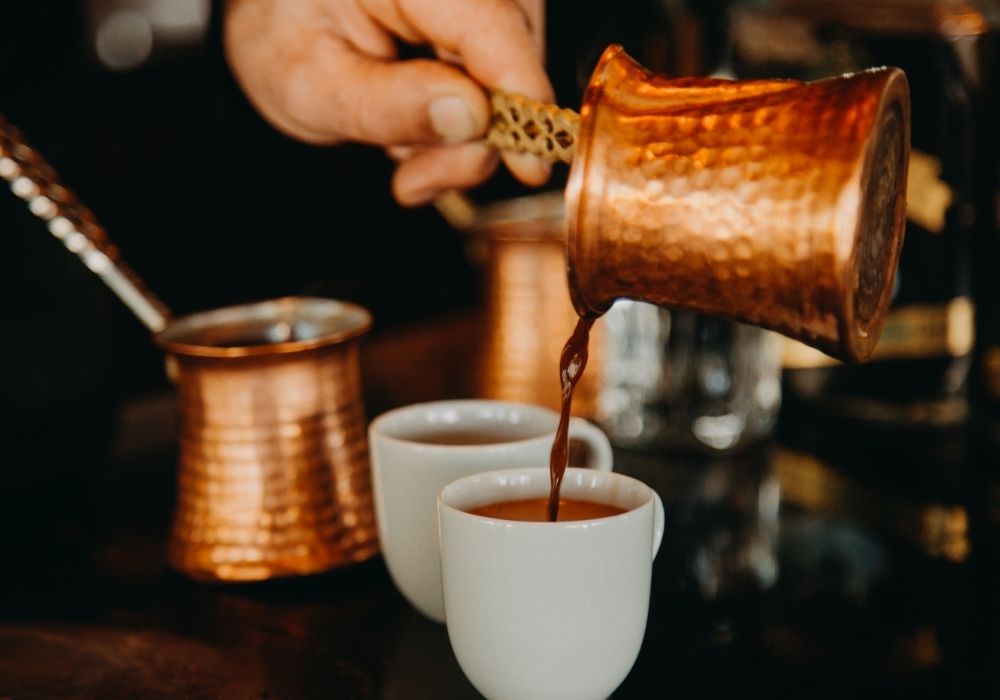
Balkan coffee habits look nothing like grabbing huge to-go cups at drive-thru windows. Traditional Turkish or Bosnian coffee, served in small cups and sipped slowly throughout the meal, creates a totally different relationship with caffeine.
The coffee is stronger but drunk in smaller amounts and at a much slower pace. Mindful coffee drinking prevents the typical Western habit of using caffeine as a quick energy fix—gulping enormous servings to make up for not enough sleep.
Instead, slow sipping creates a gentle alertness that works with your body’s natural waking process. Many people who try the Balkan coffee approach notice they become more sensitive to caffeine and don’t crash in the afternoon like they used to.
8. Small plates trick you into eating less.
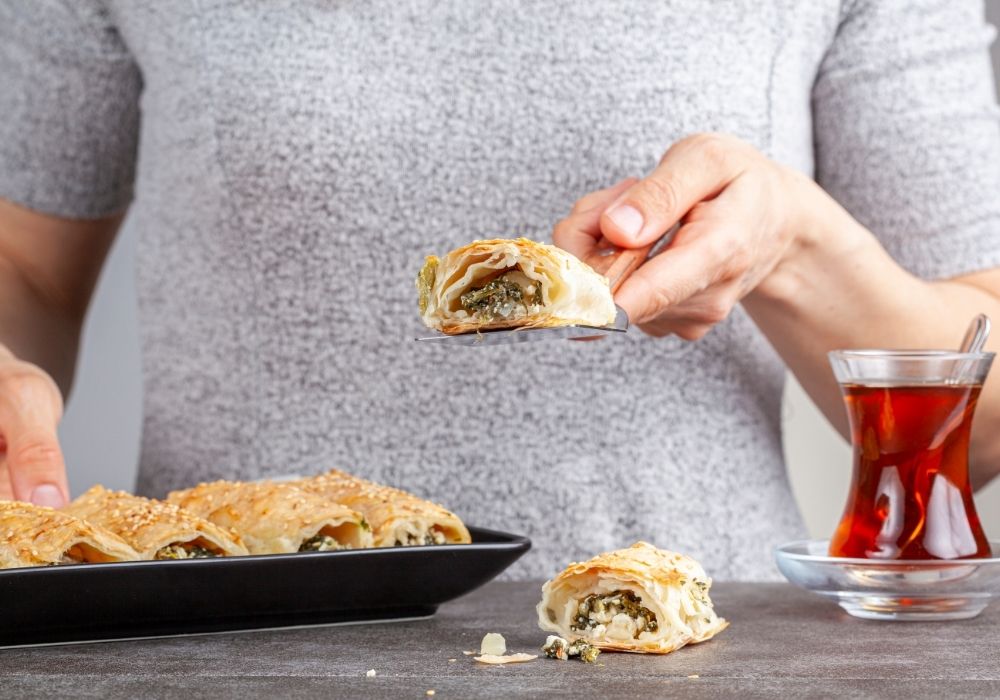
Instead of huge portions that decide how much you’ll eat before you start, Balkan breakfasts spread foods across the table in smaller servings that everyone shares. This small difference creates a natural way to eat more intuitively—you take what looks good, and can easily have more if you’re still hungry after your first serving.
Sharing food helps reset your awareness of hunger, as it removes the pressure to finish everything on a full plate. Many people find they actually need less food than they usually eat when trying this style, naturally stopping when satisfied rather than stuffed. Family-style eating also encourages trying more different foods, giving you better nutrition variety without even trying.
9. Food marketers lose their morning power over you.

Walk through American grocery store breakfast aisles and you’ll see constant new products and limited-time offerings driven more by marketing than nutrition. In contrast, Balkan breakfasts have stayed basically the same for generations, with recipes passed down through families with little change. This consistency gives you a refreshing break from always having to choose something new, removing the mental fatigue that comes with endless options.
Using these traditional food combinations also connects you to food heritage that has stood the test of time—these foods have kept people going through centuries of hard physical work. When foods stay in a culture’s diet for hundreds of years, they’ve usually earned their place by being truly useful, not because of clever advertising.
10. Leftover breakfast transforms into lunch magic.
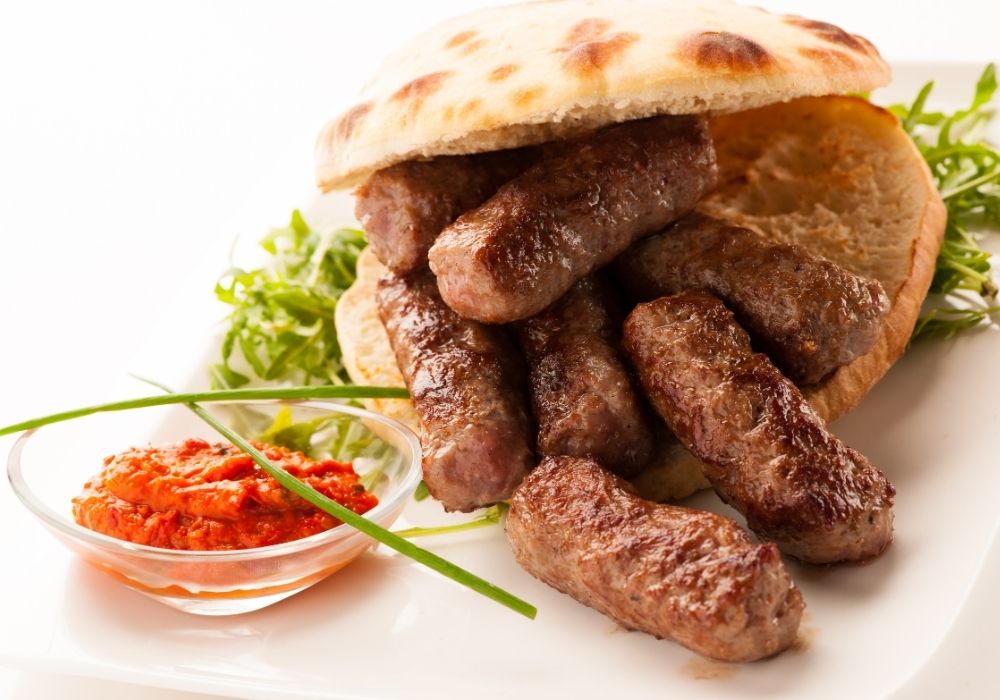
Many Balkan breakfast foods work double-duty as ingredients for other meals during the day, creating smart efficiency in cooking and cutting waste. Leftover red pepper spread becomes a sandwich topping for lunch, extra yogurt turns into a sauce for dinner vegetables, and breakfast cheese gets crumbled into afternoon salads. Using foods in multiple ways helps save money, as buying items that serve several purposes throughout the day reduces your overall food costs.
For busy households, making something once and using it different ways saves significant time. Traditional Balkan eating demonstrates sustainability practices that existed long before we even talked about environmental impact.
11. Seasons dictate your plate, not supermarkets.

Balkan breakfasts change with the seasons, following natural growing cycles rather than the year-round sameness of supermarkets. Summer meals feature fresh tomatoes and peppers at their tastiest, while winter brings preserved versions of these summer harvests alongside heartier foods better suited to cold weather.
This seasonal eating brings several benefits beyond better taste. Eating produce at its peak gives you better nutrition, as vitamins and minerals haven’t broken down during long storage or shipping.
Changing your breakfast foods also prevents the boredom that comes from eating the same things all year. Seasonal eating reconnects you with natural cycles that our modern food system has mostly hidden from view.
12. Morning meal prep doubles as stealth meditation.

Hands-on preparation of traditional Balkan breakfasts—cutting vegetables, arranging foods, making coffee properly—creates a natural mindfulness practice at the start of your day. Unlike the automatic movements of pouring cereal, these preparation steps require attention, setting a tone of engagement for the hours ahead.
People who try Balkan breakfast traditions often find that the preparation itself becomes a valuable part of their morning routine, giving them a transition space between waking up and starting their productive day. The sensory experience of working with fresh ingredients—smelling bread, seeing bright colorful vegetables, hearing coffee brewing—wakes up multiple parts of your brain and creates a better transition into your day than just shoving food in your mouth.
13. Your breakfast connects you to centuries of wisdom.
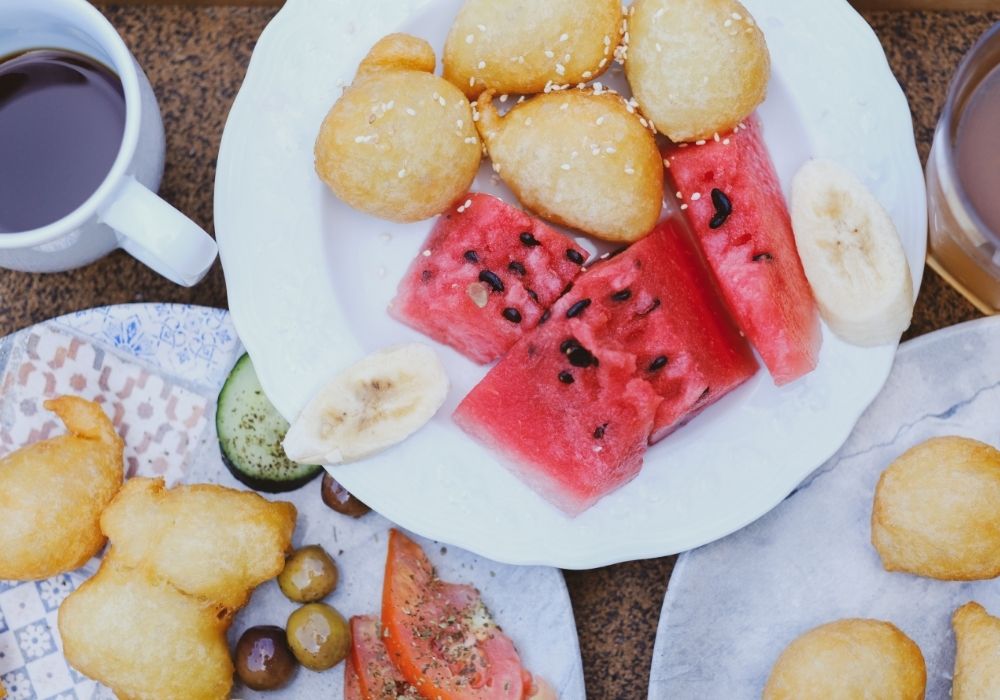
Perhaps the deepest change comes through connecting to the cultural wisdom built into traditional food practices. Balkan breakfasts hold centuries of collected knowledge about nutrition, community, and daily rhythms. Joining in these traditions connects you to generations of human experience and survival knowledge.
People with Balkan heritage often find that returning to traditional breakfast practices strengthens their cultural identity and family bonds that might have weakened as families moved away from their homeland. For others, borrowing elements of these traditions offers insight into different ways of approaching daily life and wellbeing. The breakfast table becomes a place where cultural appreciation happens naturally, without the fake framework of “cultural experiences” designed for tourists.